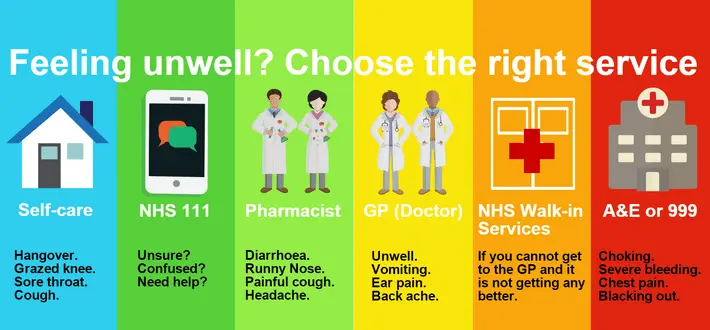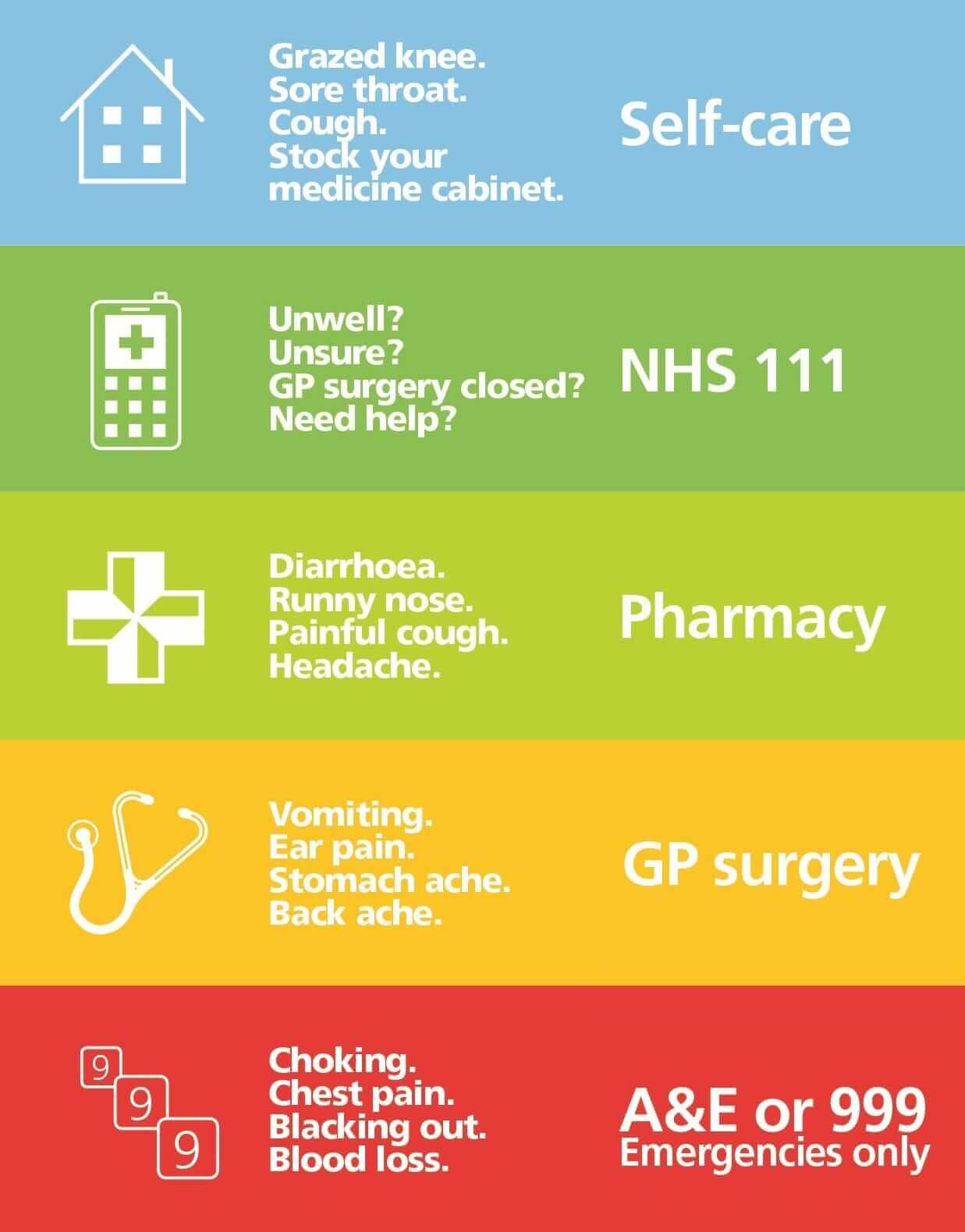There are many types of injuries and illnesses, ranging from minor conditions that can be managed at home to serious issues requiring urgent medical attention. Understanding the appropriate first steps is essential to ensure you receive effective treatment as quickly as possible. It also helps NHS services operate more efficiently and support patients in need.
Self-Care
The NHS encourages individuals to visit a pharmacy or hospital only when necessary. Many minor conditions can be safely managed at home, provided you have the appropriate medications available. However, if you are concerned about persistent or worsening symptoms, it is always advisable to seek professional advice.
NHS 111
NHS 111 (previously known as NHS Direct) is a 24/7 helpline staffed by trained advisors who can:
Provide self-care advice
Connect you with a nurse, emergency dentist, or GP
Book a face-to-face appointment
Dispatch an ambulance when required
Direct you to the most suitable local service for your needs

Pharmacy
Your local pharmacy can dispense medications prescribed by a GP or doctor. Pharmacists are also qualified to offer advice on suitable over-the-counter treatments based on your symptoms. Many pharmacies can provide assistance over the phone as well.
You may also seek advice or collect medication on behalf of someone else, provided you can confirm their details—this may be done through a phone call or text verification.
GP Surgery
A General Practitioner (GP) is a doctor with broad medical knowledge who can identify early symptoms and provide initial diagnoses. A GP can:
Offer immediate diagnosis and treatment
Issue prescriptions for medication
Refer you to a hospital or specialist when necessary
Appointments can be booked by calling your GP surgery or visiting their website. Many practices now offer telephone triage, where a doctor or nurse will call to assess your symptoms and determine whether an in-person visit or another course of action is most appropriate.
999 and A&E
In a life-threatening emergency, you must call 999. After reporting the emergency, a trained call handler will guide you through the necessary steps. It is important to listen carefully, answer all questions, and remain on the line until instructed otherwise.
Patients with serious or life-threatening conditions are taken to Accident & Emergency (A&E), where urgent care is provided. Ambulance staff will assess and prepare you during transport, but you may also go directly to A&E yourself if necessary. Upon arrival, a medical professional will evaluate your condition and determine the most appropriate treatment pathway..

